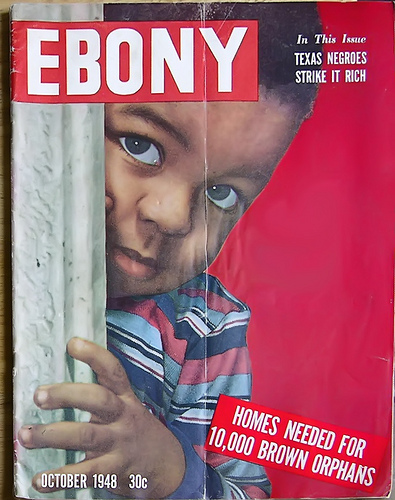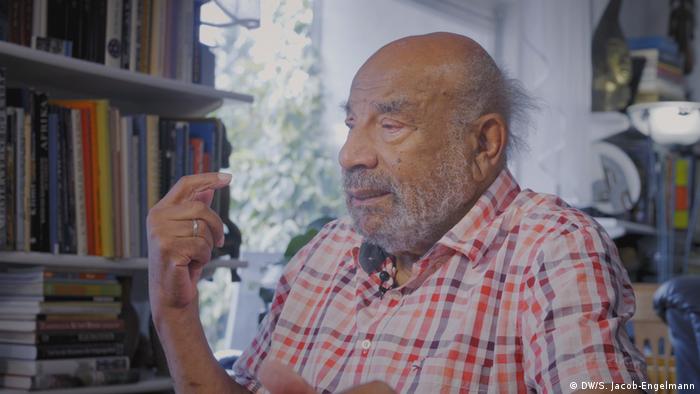Germany’s ‘Brown Babies’Posted in Articles, Europe, Family/Parenting, History, Media Archive, United States on 2019-02-07 02:30Z by Steven |
Black German Cultural Society
2019-02-05
 Home Needed for 10,000 Brown Babies Interracial Children of War, Ebony Magazine, October 1948 |
We Are Here! (Wir Sind Hier!)
“We’ve struggled through childhoods filled with confusion, fear, anger, and feelings of inferior self-esteem. Navigated adolescence in extreme conformity to perceived structures of authority in order to redeem our existence, or in defiance to them in utter rebellion. Adulthood was either accomplished successfully by integrating the powerful nuances of our diversified selves, or postponed until safety could be found in the distanced wisdom of experience. Some of us didn’t make it. Some of us are just now coming of age.” ~ Rebekka White, Black German
Out of the approximately 95,000 U.S. Occupation babies born in Germany shortly after WWII, there were approximately 5,000 of us, Post WWII Afro-German children or so-called Negro mulatto babies, better known in the United States as Germany’s “Brown Babies.” In 1952, the SPD (Social Democratic Party of Germany) deemed that we formed a special group, presenting a human and racial problem of a special nature. Our national and cultural heritage were seen to be in direct contrast to our skin color…
Read the entire article here.





